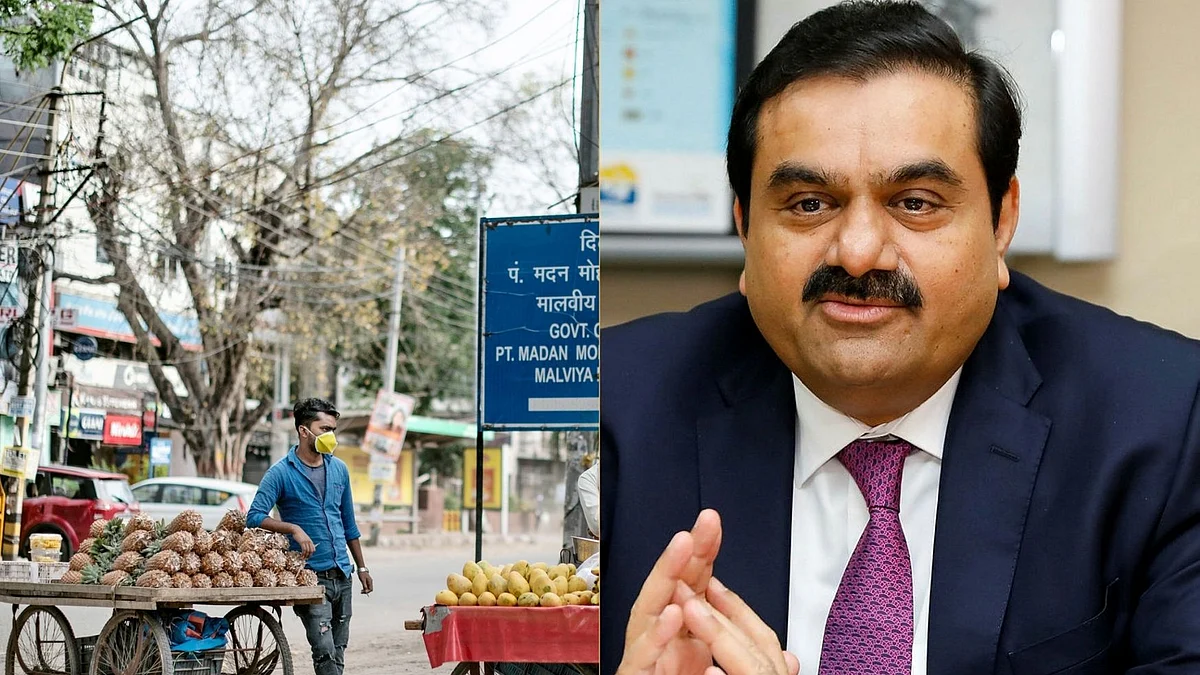Bullish billionaires bloom as small business and trade go bust
Bloomberg Billionaire’s Index of 2021 claims Gautam Adani added $16.2 billion to his net worth which while Elon Musk added $10.3 billion and Jeff Bezos lost $7.59 billion

The pain that envelops India now is total. There is that total feeling of helplessness of families in distress, in mourning, in desperation. They are all our families. No one has been spared by the pandemic. The numbers stop making sense as you condole, feel for, hide, run away from the overwhelming numbness of continuous grief.
Hidden in all this pain are the effects of the pandemic on livelihoods, on income and the daily struggle. Much as we wept – some of us at any rate – over images of migrant workers walking India’s highways in the heat of summer last year to escape from the virus, this year we have been so caught up in death and hospitals that we have pushed those images to the backs of our minds.
But for the workers themselves, for every small businessman and trader, for every job worker, every graduate and hopeful, the pandemic of 2021 has wiped out every dream and emptied every coffer. Of course, there is wealth loss and there is wealth generation. According to the Bloomberg Billionaire’s Index of 2021, Gautam Adani added $16.2 billion to his net worth which stood at $50 billion in March this year. By comparison, Elon Musk added $10.3 billion, and Jeff Bezos lost $7.59 billion.
At the same time, the Indian business environment in general has seen massive downturns – hospitality, tourism, automobiles, real estate, construction, aviation and travel being amongst the worst hit. As of now, there is hope that the losses would not be as bad as 2020. But given how long it is taking to control the second wave of Covid19 and India’s severe vaccine shortages, it seems foolish not to give in to despair.
Lost within wealth generation and big business losses, are small and medium enterprises. And even below them, those tiny side businesses that we do not even consider. A roadside vegetable and fruit vendor in a lockdown has not just lost out on a stream of daily customers, he can no longer expect larger party and wedding orders.
The flower vendor who depends on weddings and functions. People who hire out tents. Wedding caterers. Hairdressers and barbers. Grocery shops big and small. Potters. Artisans. Painters. Yes, even those roadside pakora-makers apparently so beloved of the prime minister. The list is endless.
The latest data from the Centre for Monitoring the Indian Economy suggests that effects for 2021 are dire and that women have been the biggest losers in lockdowns. More people have now fallen below the poverty line and basic income indices. If before the Covid19 crisis, the figures stood at 25 % in rural areas and 15 % in urban areas, these were at 41% in rural areas and 35.3% in urban areas in the first eight months of the pandemic according to India Spend.
Minus a robust welfare system, of both money and food, we have a full-blown crisis on our hands. This will run parallel to the health effects caused by the virus. Economists Amit Basola and Rosa Abraham in an interview to India Spend suggest expanding the MGNREGs budget for rural areas, working within lockdown regulation to boost rural incomes. For urban areas, they look to Kerala’s Kudumbashree programme where people were employed to make PPE kits and also that ASHA and Anganwadi systems be bolstered.
However, for the real picture of India to be tackled and for suffering across all sectors to be addressed, we need a concerned government which is interested in work. What we are blessed with instead is a personality-based political formulation which is obsessed with optics, image and information manipulation. There has been criminal neglect of virus management, of vaccine procurement and health infrastructure during the worst pandemic to hit humankind in living memory. But the focus of the Central government and some state governments has been to deny reality and punish those who hold a mirror on their hands.
One official answer to dead bodies of Covid patients flooding our rivers has been to plan an international version of Doordarshan so the “real India story” can be shared with the world. The publicity answer has been for Mr Modi to be lost for words in a fleeting moment of emotion on television while lecturing us on the efforts of health workers during the pandemic. Both of these are examples of the cornerstone of the Narendra Modi government: image over substance.
Sadly, the economic effects of the virus will not go away just by wishing. And yet, here we are.
(The writer is a columnist and commentator. Views are personal)
Follow us on: Facebook, Twitter, Google News, Instagram
Join our official telegram channel (@nationalherald) and stay updated with the latest headlines